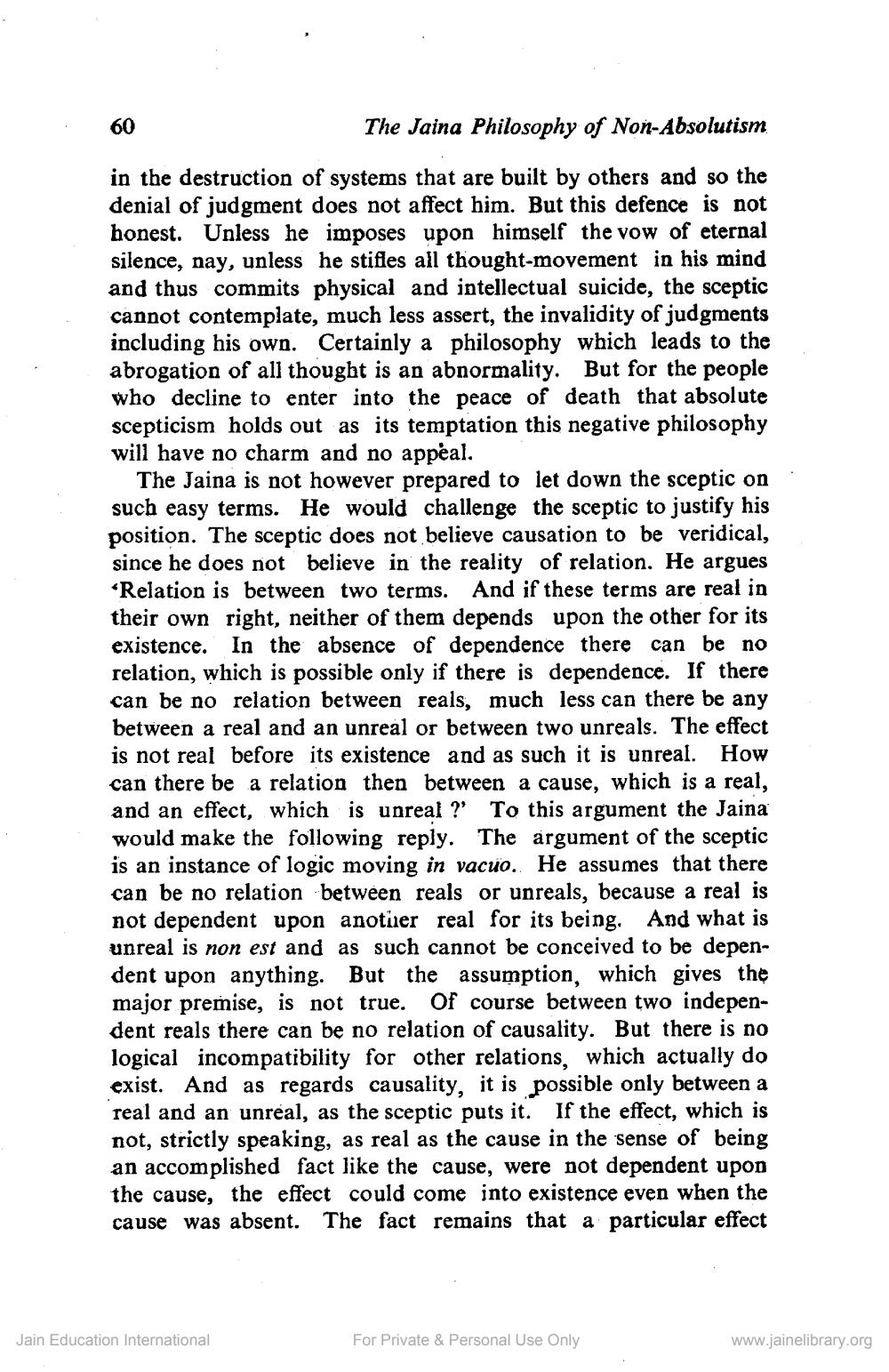________________
The Jaina Philosophy of Non-Absolutism
in the destruction of systems that are built by others and so the denial of judgment does not affect him. But this defence is not honest. Unless he imposes upon himself the vow of eternal silence, nay, unless he stifles all thought-movement in his mind and thus commits physical and intellectual suicide, the sceptic cannot contemplate, much less assert, the invalidity of judgments including his own. Certainly a philosophy which leads to the abrogation of all thought is an abnormality. But for the people who decline to enter into the peace of death that absolute scepticism holds out as its temptation this negative philosophy will have no charm and no appeal.
The Jaina is not however prepared to let down the sceptic on such easy terms. He would challenge the sceptic to justify his position. The sceptic does not believe causation to be veridical, since he does not believe in the reality of relation. He argues *Relation is between two terms. And if these terms are real in their own right. neither of them depends upon the other for its existence. In the absence of dependence there can be no relation, which is possible only if there is dependence. If there can be no relation between reals, much less can there be any between a real and an unreal or between two unreals. The effect is not real before its existence and as such it is unreal. How can there be a relation then between a cause, which is a real, and an effect, which is unreal ? To this argument the Jaina would make the following reply. The argument of the sceptic is an instance of logic moving in vacuo. He assumes that there can be no relation between reals or unreals, because a real is not dependent upon anotier real for its being. And what is unreal is non est and as such cannot be conceived to be dependent upon anything. But the assumption, which gives the major premise, is not true. Of course between two independent reals there can be no relation of causality. But there is no logical incompatibility for other relations, which actually do exist. And as regards causality, it is possible only between a real and an unreal, as the sceptic puts it. If the effect, which is not, strictly speaking, as real as the cause in the sense of being an accomplished fact like the cause, were not dependent upon the cause, the effect could come into existence even when the cause was absent. The fact remains that a particular effect
Jain Education International
For Private & Personal Use Only
www.jainelibrary.org




